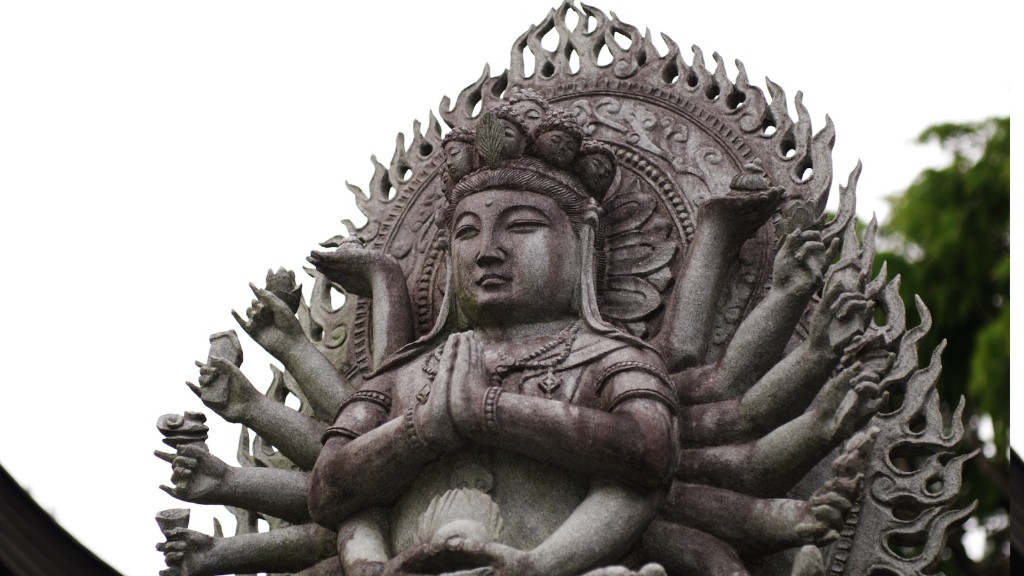What Is Traditional Judaism
Judaism is the religion of the Jewish people, primarily based on the teachings of the Torah, the central text of the Jewish faith. Over the centuries, Judaism has evolved and today it is practiced by a wide range of spiritual, cultural, and political denominations. Traditional Judaism is a form of the religion that embraces age-old beliefs, customs and traditions, practices and observances, as well as a celebration of Jewish holidays. It recognizes the religious authority of Orthodox Jewish rabbis, as well as the importance of the prominent religious texts such as the Talmud and Shulchan Aruch.
Traditional Judaism is based on the belief that the Torah is the divinely given word of God. It is taught that the commandments, or mitzvot, of the Torah serve as the blueprint for living a meaningful life that pleases God. This includes observing the Sabbath and other holy days, respecting parents, caring for others, and studying the sacred texts. Traditional Judaism also emphasizes the special status of the Jewish people, as a “chosen” people with a unique purpose and mission in the world.
Traditional observant Jews strive to live in accordance with the principles of their faith in every aspect of their lives. This includes observing the laws of kashrut, or keeping kosher, by abstaining from certain foods; donning a tallit and tefillin, or phylacteries, to recite the morning prayers; celebrating Shabbat, or the Sabbath; abstaining from certain activities, such as working and shopping on Saturday; and observing the festivals, or holidays, outlined in the Torah. There are also a variety of ways that Jews express their faith, whether it be by attending synagogue, singing religious songs, or reciting blessings.
One of the main differences between traditional and secular forms of Judaism is the level of commitment towards religious observance. Traditional observance involves the strict observance of all religious laws and teachings, whereas secular practice is typically limited to a handful of requirements, such as attending synagogue and abstaining from certain foods. Many traditional Jews also emphasize a commitment to learning, study, and understanding the deep underlying meaning of Judaism’s religious texts and laws.
Traditional Jews observe various religious practices in order to create a sense of wholeness and holiness in their lives and to cultivate a spiritual connection with God. These practices include nightly and morning prayers, engaging in regular study of the Talmud, keeping kosher, observing the Sabbath, and participating in acts of charity and community service.
The traditional Jewish faith is based on the Ten Commandments and is one of the oldest monotheistic religions in the world. It is a faith that has been practiced for thousands of years and is still being practiced globally to this day. All that is required for someone to become a Jew is for them to accept the faith and begin to observe its teachings and commandments.
Jewish Denominations
Traditionally, there were three distinct denominations of Judaism: Orthodox, Conservative, and Reform. Orthodox Jews adhere strictly to the laws outlined by the Torah, while Conservative Jews are more lenient in their interpretation and practice. Reform Jews are more liberal and have fewer restrictions, while Reconstructionist Jews take a more modern approach to the religion. Today, there are many additional denominations of Judaism, such as Humanistic Judaism and Progressive Judaism, that also offer varying interpretations of the principles and teachings of the faith.
Orthodox Jews are the most fundamentalist in their approach and adhere to the traditional beliefs and practices of the faith. They do not accept innovations, such as driving on the Sabbath and eating non-kosher food. Orthodox Jews typically pray three times a day in a synagogue and follow a strict interpretation of the laws of the Torah. Women are generally not involved in the synagogue service, although some Orthodox communities are making strides in this regard. The most influential denomination of Judaism is that of the Chasidic sect, with its origins in Eastern Europe.
Conservatives are less fundamentalist in their convictions, but still believe in most of the basic principles of traditional Judaism. They may accept some innovations and emphasize the importance of the moral teachings of Judaism. Conservative Jews don’t believe that all aspects of traditional practice are necessarily divinely mandated, but strive for a balance between their faith and modern culture. This can include observing the Sabbath differently, such as driving on Shabbat, but still engaging in public prayer. Women are allowed to participate more in the synagogue service.
The most liberal branch of Judaism is the Reform branch. Reform Jews prioritize the ethical teachings of Judaism, while they may not observe many of the religious laws and customs. Reformed Jews might drive on Sabbath and select from a wide variety of rituals and holidays to observe. Gender roles are often less distinct, and women are sometimes allowed to lead services. Reform Jews are generally more accepting of intermarriage and homosexuality.
Jewish Holidays
Jewish holidays are closely tied to the calendar and mark some of the most important events in the faith’s history. Each holiday has a unique set of traditions, symbols and observances, and traditional Jewish families often gather together to celebrate. Some of the most important Jewish holidays include Rosh Hashanah, Yom Kippur, and Sukkot. Rosh Hashanah is the Jewish New Year, while Yom Kippur is the Day of Atonement and Sukkot is the Harvest Festival. Passover is one of the most widely celebrated holidays, which commemorates the Israelites’ exodus from Egypt.
Shabbat, or the Sabbath, is a weekly observance, which begins on Friday at sundown. During Shabbat, Orthodox Jews refrain from all work, study Torah, and attend synagogue services. This is a time to unplug from the week and focus on connecting with family and friends.
Jewish Customs and Practices
Jewish customs and practices involve following specific laws, engaging in rituals, reciting blessings, and observing the Sabbath and other holidays. In order to observe the commandments of the Torah, Jews must embrace certain behaviors and habits such as prayer, and eschew others, like consumption of non-kosher foods and the practice of idolatry. For example, Orthodox Jews will not eat any form of pork or shellfish, refrain from work on the Sabbath and holiday days, and recite various blessings before and after eating.
Traditional Jews also observe specific life cycle rituals that mark the major milestones of an individual’s life, such as birth, puberty, marriage, and death. Many of these customs have been adapted over the centuries to accommodate changing times and different customs and beliefs. For instance, some Jews opt for a more traditional approach to marriage ceremonies, while others may opt for a more contemporary approach.
Life cycle rituals take place in the synagogue, home, and other locations, and are are typically celebrated with close family and friends. Birth rituals may include a naming ceremony and circumcision, while marriage rituals involve breaking a glass and signing a ketubah, or marriage contract. Funeral and mourning rituals involve special prayers and symbols, such as lighting a special memorial candle.
Jewish Beliefs and Values
At the core of traditional Judaism are the beliefs and values that guide the actions and behavior of its followers. Chief among them is the concept of monotheism, or the belief in one God. Jews also believe that every single person – regardless of religious or nonreligious status – has an obligation to make positive contributions to society, as exemplified by the principle of tikkun olam, or repairing the world.
Other key beliefs include the importance of study, prayer, tzedakah (justice) and hesed (kindness) towards others, and holding fast to the faith and teachings of Judaism. These beliefs serve as the foundation for living a holy and meaningful life full of joy, purpose and connection to God. Traditional beliefs also emphasize the importance of the restoration of the Temple in Jerusalem, and the eventual coming of the Messiah.
Jewish Education and Learning
The traditional Jewish faith places a strong emphasis on education and learning. Orthodox Jews are typically taught to read and understand Hebrew and other sacred texts, such as the Talmud and Midrash. Talmud Torah, a mandatory education taught in the professional schools, is a type of text study that focuses on exploring the deeper philosophical and legal teachings of the Jewish faith. Jewish learning is also seen as an important way to pass on the faith from one generation to the next.
In addition to the formal education of the Torah, Yeshivas (Jewish schools) are often established for the purposes of informal education. These schools focus on the study of specific texts and the development of strong religious values. The curriculum often involves lessons for both adults and children, as well as seminars and helpful books for those who are exploring their Jewish heritage.
Conclusion of Practices
In conclusion, traditional Judaism is a form of the religion based on its founding principles, laws, customs, and rituals. It is centered on the belief in one God and focuses on providing individuals with the tools needed to attain spiritual enlightenment. Traditional Judaism encompasses an array of denominations, holidays, customs and practices, beliefs, and learning opportunities – all which continue to bind Jews together as a people and serve as a testament to the enduring power of faith.


